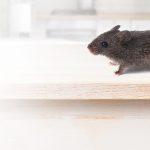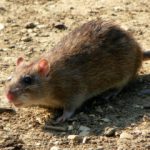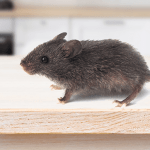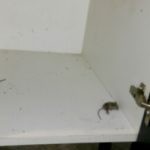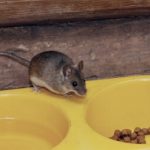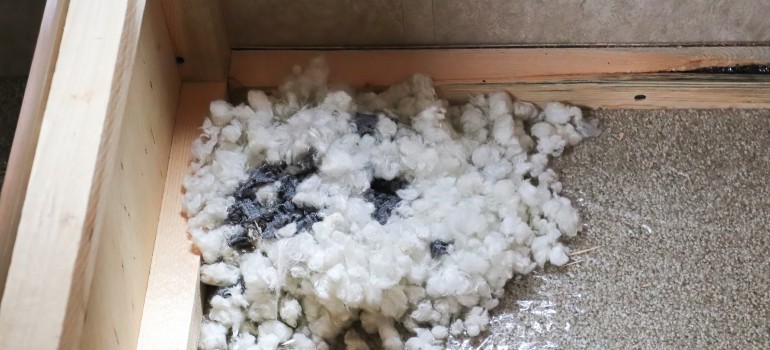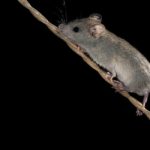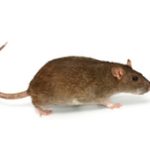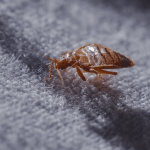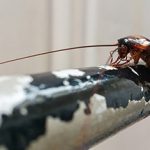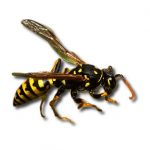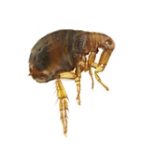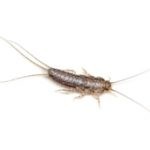What Do Mice Eat?
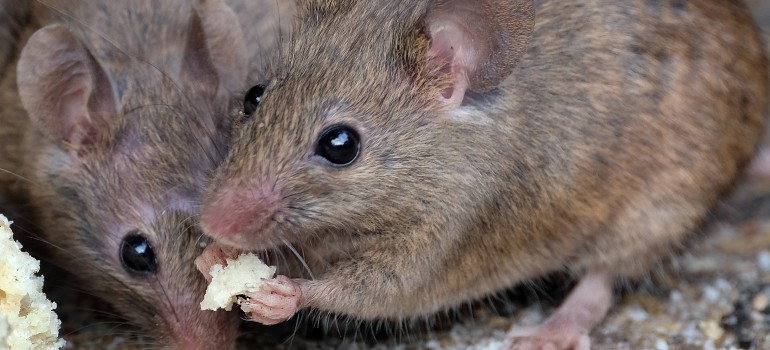 Image by: Paulpixs/Shutterstock
Image by: Paulpixs/Shutterstock
Mice are opportunistic feeders and will consume almost anything that they find. Mice frequently raid pantries and kitchens, contaminating food supplies. They are particularly attracted to rice, oats, wheat, baked goods, chocolate, and sugary snacks. Dry pet food left in pet bowls or storage bins also attract mice. Mice also gnaw on apples, bananas, and stored vegetables like potatoes and carrots. The mouse is highly adaptable and will consume any available food sources inside a house.
It is common for mice to scavenge in bins and eat food scraps, discarded leftovers, and organic matter that has decomposed. For house mice, open trash cans provide a constant source of food.
Even though paper, cardboard, and packaging materials are not food, mice chew them to gain access to food or build nests. Additionally, mice chew through drywall and insulation inside walls to create pathways inside, causing structural damage.
Mice gnaw on electrical wiring, which can lead to fire hazards. The plastic coating on wires attracts them, leading to dangerous short circuits.
What Do Field Mice Eat?
The field mouse (Apodemus sylvaticus), also sometimes known as the wood mouse is an omnivore, meaning they eat both plant and animal products. In the wild their preferred diet is a mix of seeds and grain, berries, fungi, insects and snails.
Field mice tend to be shy and avoid human contact, they’re also mainly nocturnal but you may see them if you live in a rural area. They’re better known as a garden pest than a house one. They’ll eat newly planted legumes, roots, bulbs, corms and just about any vegetable matter.
Like all rodents, field mice are adaptable. If they do come to your home they’ll seek out grain supplies but will also feast on any unsecured foods they find in your home. Since they also eat insects, a field mouse invasion may indicate an underlying insect infestation.
What Do Wild Mice Eat?
Wild mice in the UK include the field mouse, the harvest mouse (Micromys minutus) and the yellow-necked mouse (Apodemus flavicollis). Any wild mouse species might move into your home if they find favourable conditions there. They’ll start to breed if they’re allowed to remain undisturbed and they will eat any food that’s not secured in rodent-proof containers.
Wild mice also bring food back to their nests to hoard for later consumption. This habit will attract yet other pests, such as weevils, beetles and other insects. All mouse species can cause damage to your property and may carry disease.
What Do House Mice Eat?
Food items that house mice consume include easily accessible dry foods, such as pasta, bread and crackers. House mice will also consume seeds and nuts. Though not their first choice, mice will eat cheese and butter. Any accessible scraps left on countertops or floors attracts mice to your kitchen.
Like their wild cousins, house mice most naturally eat cereals and grain products but they’ll adapt to whatever is on offer. This includes pet food, kitchen scraps, meat, vegetables and nuts.
House mice also chew on wooden furniture, doors, and baseboards. Soft plastic is easily gnawed through by rodents, so its better to store food products in metal containers. Avoid leaving pet food out overnight and keep pantry shelves clean and free of crumbs.
A house mouse will eat around 10% to 15% of their body weight a day, which might not seem like much as the typical house mouse weighs around 20 to 30 grams.
House mice eat a wide variety of foods inside homes, from pantry staples to food scraps, but they also cause significant damage by gnawing on wiring, insulation, and household items. Understanding what mice consume and how they damage property can help homeowners take proactive steps to prevent mice infestations and protect their homes.
Do Mice Eat Cheese?
Mice will certainly eat cheese if it’s on offer. It’s a foodstuff, and that’s the only essential requirement. However, there’s no evidence to suggest it’s a preferred food. Research suggests that mice prefer foods that are high in carbohydrates over those which are rich in fat or protein. In tests where mice were offered a choice of grapes, peanuts and cheddar cheese, the cheese was actually avoided while the peanuts were the first choice of food.
Do Mice Eat Meat?
Yes, mice can eat meat. While they are primarily omnivores, they will also consume meat if available. In the wild, mice may eat insects, small carcasses, or even other mice in extreme conditions. In homes, they may gnaw on leftover meat scraps, pet food, or anything high in protein. Their ability to adapt their diet makes them highly resilient pests.
Do Mice Eat Pet Food?
Yes, mice will eat pet food. Since some people are less careful about storing pet food in sealed containers than they are about their own food, mice might zone in on pet supplies as the easiest source of the nutrition they need. Mice will gnaw through paper or cardboard containers or plastic bags to get to the food within. And if food is left in the bowl, especially overnight a mouse might well come straight to the bowl to help themselves.
Do Mice Like Chocolate?
Yes. Mice like chocolate, especially milk chocolate which has a lot of sugar. While little specific research has been done on the subject, it appears that mice are relatively tolerant to theobromine. This is the ingredient in chocolate that makes it toxic to dogs or cats. High levels of theobromine might not be good for mice but as the highest levels are found in unsweetened dark chocolate which mice aren’t so keen on, it’s unlikely that they’d ever eaten enough of it to kill them.
Do Mice Eat Clothes?
Chewed or shredded clothes might be a sign of a mouse invasion but cloth, natural or manmade, isn’t a foodstuff for mice. Mice will chew on clothes and other fabrics for several reasons:
- Clothes are shredded, torn and taken away by female mice to help build and line their nests
- The clothes might have picked up an odour that smells good to the mice
- Mice just chew constantly – it’s a way of keeping their teeth, which never stop growing, trimmed.
On the subject of chewing and gnawing constantly, mice can damage the fabric of your home. They’ll gnaw on wood, nest in upholstered furniture and are notorious for chewing through the insulation around electrical cables which can be a significant fire risk.
Mice in Attic What Do They Eat?
Mice in the attic can cause significant damage as they gnaw through materials and contaminate stored items. They do not eat insulation for nutrition, but they chew on fibreglass, foam, and cellulose insulation to create nests. Over time, this weakens the attic’s thermal barrier, leading to energy inefficiency.
Also, mice gnaw on wooden beams, cardboard boxes, books, and paper. While they do not consume these materials for sustenance, they help keep their teeth sharp and gather nesting material. They often chew on electrical cables, which can strip away insulation and pose a serious fire hazard. Although they do not gain nutrition from wiring, their instinctive gnawing behaviour can lead to costly damage.
If insects or carcasses of other rodents are present in the attic, mice may consume them for protein. This scavenging behaviour helps sustain them when other food sources are scarce.
If you need advice or help with mice control or any other pest treatment Fantastic Pest Control is here for you and you can contact us 24 hours a day.
Do Mice Eat Grass?
Mice can eat grass but it’s not a top choice for them. The grass is hard to digest and not particularly high in calories so it’s not a terribly useful food for mice. They much prefer seeds, vegetables, insects, berries, or the food they can scavenge from your home.
Takeaways
- There are several mouse species native to the UK– any of them might invade your home if the conditions there are favourable for them.
- Securing all food supplies is a vital part of mice pest control – that means storing food in hard plastic, glass, or metal containers.
- Mice will eat just about anything – they have preferred foods but they’re really not fussy.
- Mice spoil far more food than they eat – any food that a mouse has gnawed on may be contaminated with a range of different disease-causing microorganisms.
- Mice also cause property damage – they’ll shred clothing or cloth to make nests and gnaw constantly. It’s not unknown for mice to damage electrical cables.
Securing food supplies is a good start in making your property less attractive to rodents, including mice. If you’re unlucky enough to experience a mouse infestation additional measures may be necessary to eliminate the problem.
As a commercial service provider, we only aim to inform you about what do mice eat according to the professional experience and knowledge of our pest technicians.



